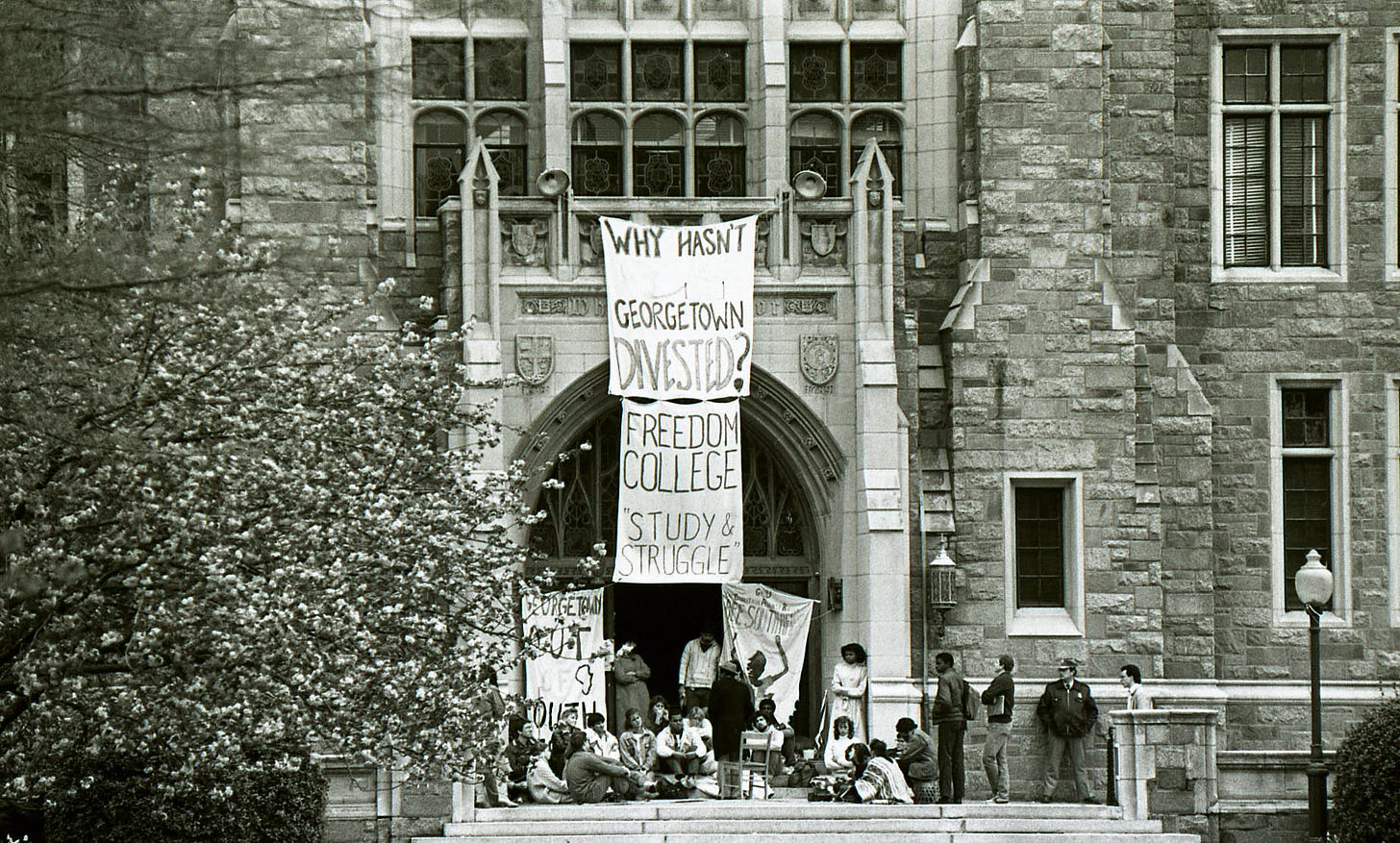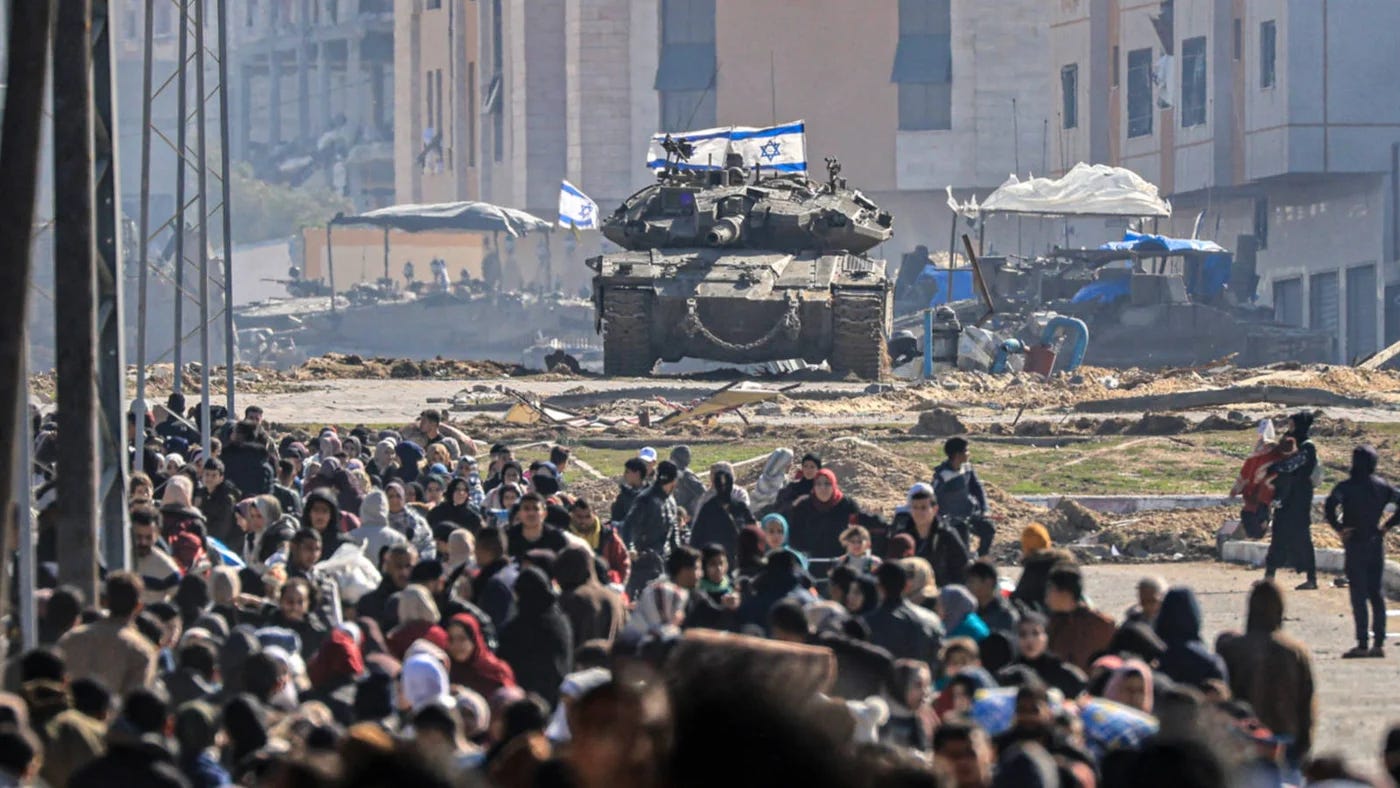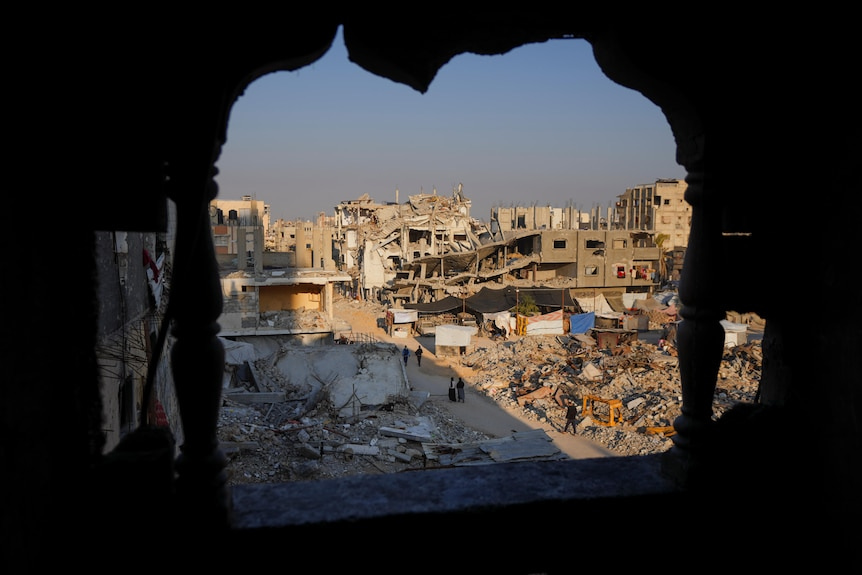
Links on underlined text
The “Referendum on Divestment and Transparency” presented to the Georgetown student body by GUSA Senators Meriam Ahmed and Sienna Lipton brilliantly outlines the legitimacy of divestment, Georgetown’s history of divestment, and Georgetown’s present investments in Israel’s genocide. I hope you will first read their words, as mine are seeped in editorial language. Their work in bringing this referendum through the GUSA senate should be commended.
The history of Georgetown University is filled with moments that encapsulate a wider historical moment of the United States. The student movement to divest the University from the apartheid state of South Africa resulted in dozens of protestors being arrested, ultimately succeeding with Georgetown’s divestment in 1986. This is true for universities across America, where students serve as an important voice in national conversations. Today, we face a moment where students can vocalize their dissent against one of the most brutal colonization campaigns and apartheid regimes in modern history. An overwhelming “Yes” vote on divestment will be a clear sign to Georgetown’s administration that students side against genocide and with the people of Palestine.
I am writing this from Ireland where I have one month left of my semester abroad. The solidarity of the Irish people with the people of Palestine is moving, based on a collective experience of colonization and oppression. At the Central Bank of Ireland, protests continue with the demand for its divestment from Israeli war bonds used to fund weapons killing hundreds of Palestinians each day. At these protests there is disgust and abhorration of the idea that even a small portion of Ireland’s money is wrapped up in guns to kill children, bombs to rip apart human limbs, or any of the military equipment being used to wipe out the Gaza Strip and the Palestinian people. The Georgetown community has to demonstrate that it is just as disgusted with our tuition dollars invested in technology to target civilians.
An element of Ireland, which I’m sure other students abroad in Europe have noticed, is the strength of student unions on campuses. There is a tangible dialogue and expectation of respect that exists between students and school administrators. Student leaders can openly and effectively voice their opinions - with elected students given greater authority to enact student concerns directly. We are far from this type of student democracy at Georgetown University with our “student union”, GUSA, kneecapped from achieving real results without administrative approval. Yet, while the results of this referendum may not guarantee an effective and efficient response from the administration (see the GU272 referendum’s history), it is one of the few moments the Georgetown student body can give its opinion in a hard-to-ignore fashion.

For over a year (and in reality for decades before), students around the country have mobilized to express their dissent against Israel, the United States’ unabashed funding and support of Israel, and their universities’ complicity in the genocide. While students have been labeled as extremists and radicals, no one can explain what is so radical about the upholding of international law. The most pertinent ask is for the siege on Gaza to end and for the Palestinian people to be liberated from the death cycle they have been forced into. To do these things, the international community must stand up to Israel and end its support. This means divestment for Georgetown, a full and transparent account of all the University’s investments, and an end to the University’s academic partnerships with Israeli institutions such as Tel Aviv University.
Every single university in Gaza has been destroyed. School is an impossibility for children in the Gaza Strip. Are we as a university comfortable with these facts? Are we as a student body okay with our bloated tuition being invested in war crimes? Are we as human beings going to be complacent in the face of brutality? As a university with signs placed on its campus proclaiming “people for others” and “faith that does justice”, how can we be okay with where our money and institutional support are going?
While this vote is of extreme importance, it cannot stop here. Our university’s investments are one sliver of a pie of funding that enters Israel and funds its brutality. I hope that this referendum offers a moment of collective voice and an opportunity for the student body to seriously contemplate what occurs every day to the Palestinian people and their complicity and connection to what Israel inflicts.
I implore each student to make this referendum a topic of conversation, defend your position, and encourage others to get out and vote from April 26th (8pm) to April 28th (8pm).


